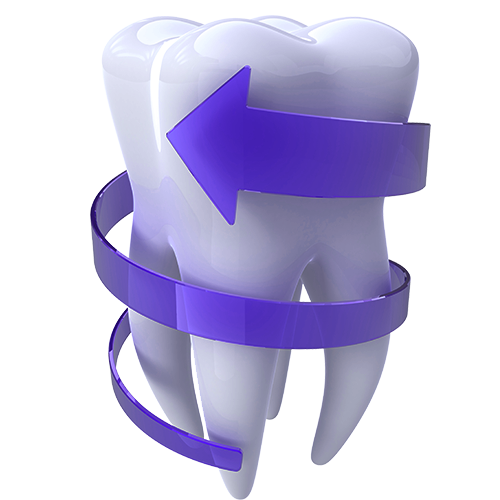Scaling and cleaning teeth, also known as professional dental cleaning or prophylaxis, is a routine procedure performed by dental professionals to maintain oral health and prevent dental problems. During the process, a dental hygienist or dentist carefully removes plaque, tartar, and stains from the teeth. They use specialized dental instruments to scale the tooth surfaces, including above and below the gumline, effectively removing accumulated deposits. This helps in preventing gum disease, cavities, and other oral issues caused by bacterial buildup. After scaling, the teeth are polished using a dental polishing tool and a mildly abrasive paste, resulting in a smoother and brighter appearance. Flossing is also performed to ensure any remaining debris is eliminated from the interdental spaces. In some cases, a fluoride treatment may be applied to strengthen the teeth. While the procedure may cause mild discomfort or sensitivity, it is generally well-tolerated. Regular scaling and cleaning, coupled with a proper at-home oral hygiene routine, contribute to overall dental health and should be accompanied by regular dental check-ups to ensure optimal oral care.

Our experienced dentists will evaluate your needs and customize treatments that are tailored to maintains your oral health.

We provide you everything to keep your smile looking its best. With us you will be able to improve your dental hygiene routine.

We are dedicated to provide our patients with superior dental care and services.

Our experts are equipped with specialized techniques to ensure patients are thoroughly comfortable during their treatments.

Scaling and cleaning, also known as professional dental cleaning or prophylaxis, offer numerous benefits in maintaining optimal dental health. This routine procedure, performed by dental hygienists or dentists, provides the following advantages:
Plaque and Tartar Removal: Scaling and cleaning effectively eliminate plaque and tartar buildup from the tooth surfaces and along the gumline. This helps prevent gum disease, as plaque and tartar harbor bacteria that can lead to inflammation, gum infections, and eventually, gum recession.
Prevention of Tooth Decay: The removal of plaque during scaling and cleaning significantly reduces the risk of tooth decay. Plaque contains bacteria that produce acids, which attack tooth enamel and contribute to cavities. Regular cleaning helps maintain a clean tooth surface, making it more resistant to decay.
Gum Disease Prevention: Scaling and cleaning play a crucial role in preventing gum disease, such as gingivitis and periodontitis. By removing the bacterial deposits that cause gum inflammation and infection, the procedure helps keep the gums healthy and reduces the risk of gum disease progression.
Fresh Breath: Bacterial accumulation in the mouth can contribute to bad breath. Scaling and cleaning effectively remove bacteria and food particles that cause unpleasant odors, resulting in fresher breath and improved oral hygiene.
Enhanced Aesthetic Appearance: Scaling and cleaning remove surface stains caused by food, beverages, tobacco, or other factors. The polishing step in the procedure further enhances the aesthetic appearance of the teeth, leaving them cleaner and brighter.
Early Detection of Dental Issues: During scaling and cleaning, dental professionals carefully examine the teeth and gums for any signs of cavities, gum disease, or other oral health problems. This allows for early detection and intervention, preventing the progression of potential issues and promoting timely treatment.
Overall Oral Health Maintenance: Scaling and cleaning, when combined with proper at-home oral hygiene practices, contribute to maintaining optimal oral health. Regular cleaning appointments help keep the teeth and gums in excellent condition, reducing the need for more extensive and costly dental treatments in the future.
Scaling and cleaning, also known as professional dental cleaning or prophylaxis, is a routine dental procedure performed by dental hygienists or dentists. It involves the removal of plaque, tartar, and stains from the teeth to maintain oral health and prevent dental problems.
It is generally recommended to have scaling and cleaning performed every six months. However, the frequency may vary depending on individual oral health needs. Your dentist or dental hygienist can assess your oral health and provide personalized recommendations.
Scaling and cleaning are typically not painful procedures. However, some individuals may experience mild discomfort or sensitivity, especially if they have sensitive teeth or gum disease. The dental professional can use techniques to minimize any discomfort, and local anesthesia is generally not required for a routine cleaning.
The duration of the scaling and cleaning procedure can vary depending on factors such as the amount of plaque and tartar buildup and the overall oral health condition. On average, the procedure can take anywhere from 30 minutes to an hour.
Scaling and cleaning are generally safe procedures with minimal side effects. However, some individuals may experience temporary tooth sensitivity or gum tenderness following the procedure. These effects usually subside within a few days.
Scaling and cleaning can remove surface stains, making your teeth appear cleaner and brighter. However, if you are specifically looking for teeth whitening beyond stain removal, additional treatments such as professional teeth whitening may be recommended.
Scaling and cleaning complement regular brushing and flossing but do not replace them. Daily brushing and flossing at home are essential for maintaining good oral hygiene. Scaling and cleaning help remove plaque and tartar that cannot be effectively eliminated through regular brushing alone.
Many dental insurance plans cover scaling and cleaning as part of preventive dental care. However, coverage can vary depending on the insurance provider and specific policy. It is recommended to check with your insurance company to understand your coverage details.
Remember, these answers are meant to provide general information. For personalized advice and recommendations, it’s best to consult with your dentist or dental hygienist.

